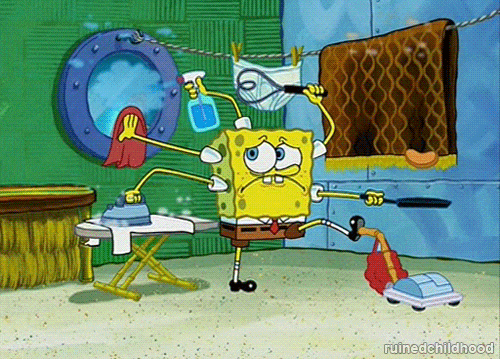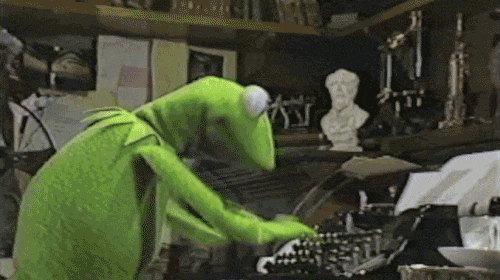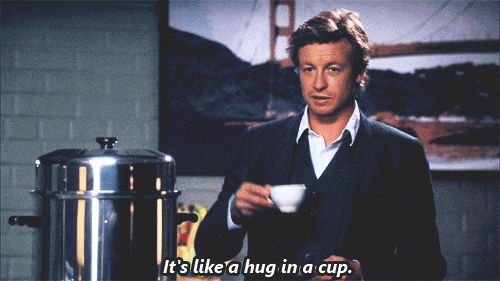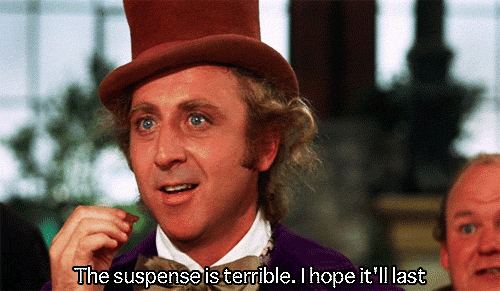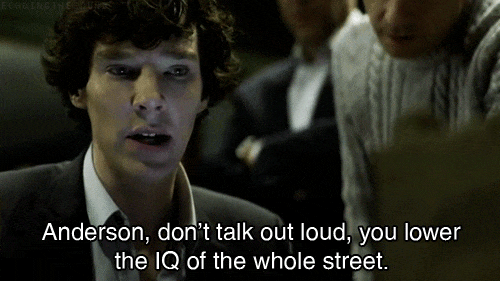Being an English major comes with its pros and cons. To all my fellow English majors out there, here are the signs you know you're an English Major...
1. Someone says, "Oh, so you want to be a teacher right?"
This one hits English majors (who aren't pursuing a career in teaching) right in the gut. The first time, someone asked me this, my response was:
To that answer, no, I do not want to be a school teacher, thank you very much. It's not that I have anything against teaching or handling kids, but that's not my intended career path. The common misconception among English majors is that most of them want to pursue a career in teaching. If you're one of those people who believe that teaching is the number one career outlet for English majors, kindly walk out please. When you think about it, there are actually more career opportunities for English majors, such as the following: publishing, news reporting (which we need more of!), journalism, public relations, blogging, researching, social media managing, editing, communications officer, freelance editor, corporate communications (yes, English majors are needed for business and in fact know how to meet tight deadlines), event planner, television, radio and Hollywood writer. The list goes on.
2. You can multitask and find time for specific obligations out of your busy schedule.
English majors can be hard workers. You think BioChem or Calculus is hard? Try writing a 700 word essay and another one after that, a poem, a short essay, now a portfolio, an article, a blog, while reading a 50 paged chapter, playing a sport, making a commitment to a club, doing your homework, working on prior commitments, doing laundry, feeding yourself, remembering to go to the local store or whatever it is you jot down in your to-do list while completing them all in the same week?
English majors have a lot on their hands and their suffering is just the same. Luckily, they acquire the skills necessary to complete the given tasks. One job's done, now move on to another. Find a free hour to go to that meeting. Write it down in your calendar. Working on a portfolio or manuscript? Find the time needed to complete that but do homework first. Do the important stuff. Find what needs to be done first.
This is the art of multitasking.
3. You know how to meet deadlines.
If you write on a regular basis, like me, whether it's a blog, essay, exam or an article for the school newspaper, you've probably suffered from carpal spasm after typing away on the computer to meet deadlines. That's right, work those overused muscles! Pull an all-nighter!
4. Coffeeholics Galore!
Caffeine, yeah baby!
First, it starts off with one cup. Maybe two or three. Okay four!
That's it, I've turned into a coffee addict!
But do I care?
Nah!
Shoutout to all my coffeeholics!
5. You have few or no final exams.
Suddenly you realize you have at least two essays and only one exam.
Holy snap!
How did that happen?
You can actually get away with it while your classmates suffer!
A 500-word essay! I've been there and done it! Impossible, please!
But the minute you reach that third page,
"Wut r words??"
And you thought this was easy!
Behold, my friends the new level of difficulty where you reach a brain fart.
6. You find meaning in everything.
Some English majors place value on literal meaning, whether's it's diction, syntax, juxtaposition or close reading. A symptom I like to call the Close Reading Syndrome.
This especially happens when reading an advanced text. When reading literary works like Mary Shelley's Frankenstein or Toni Morrison's Beloved, close reading came in handy and it didn't take long to figure out what the writer was talking about.
Every. Single. Word. Counts.
That's right, every word has meaning. Sadly, this syndrome can fall out of context, especially when a word is used for a different meaning or you connect the said word someone uses in a conversation as a sexual reference, even though that's totally not the case.
7. You're able to follow the outline of a plot.
There's a beginning, middle and ending. But there's more to it than that.
After reading too many classical books and watching adventure movies, there's also a cycle, coined by Joseph Campbell as The Hero's Journey. The journey begins and ends in the hero's ordinary world with the quest passing through an unfamiliar, special world with key events such as a call to adventure, assistance, departure, trials, crisis, treasure, result, return, new life and resolution. Characters leave their comfort zone, have an experience that transforms them and then they recover or possibly do it again.
It's been done many times over in books and films, even if it's not fiction or adventure-related. As an English major, you've all seen it before but you're still hooked to see how it'll end. You eat up every plot that's out there.
"Oh, everyone's a critic!"
8. You know how to use your imagination.
You never know when you're gonna use it next. Even though you're not necessarily working on a novel, poem or short story, imagination can come in handy when working on a essay, a class project, job, groupwork, sales advertisement or what have you.
Imagination is not just limited to the liberal arts (English, writing, art, etc.).
And who knows? You might use it for something else...
9. You start acting snobbish.
If you've finally reached the point, where you're a Grammar Nazi/Oxford Don/19th Century Literary Loving/Upper-Class/Literary perfectionist/Well-mannered/polite-speaking/tea-drinking/people pleaser, you know your literary personality is kicking in.
10. You work alone.
But will you survive?
Yes, you will!
Yes, you can!
Unfortunately, you have to do it alone, because that's the only way you can do it. The best result you can get is by working alone.






